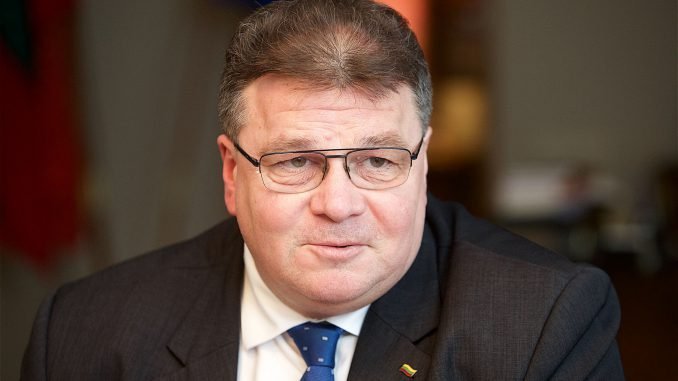
“It can be said that there’s in fact a united position, as from the very beginning it was underlined that the goal of the discussion was not to change the exiting policy but to assess the situation, those facts we have today, and based on that, to determine our further actions and further policy,” the minister told BNS by phone from Brussels.
As the second anniversary of Crimea’s annexation approaches, EU ministers discussed the existing situation in Russia, EU-Russian relations and general principles those relations should be based on in the future.
According to Linkevičius, ministers agreed on several specific policy points, including the one stating that the implementation of the Minsk agreement is a fundamental condition for progress in Russian-Ukrainian relations. Moreover, it was agreed that support to Eastern partners should be stepped up and resistance to Russia’s actions should also be strengthened.
“We can call them (Russia’s actions) as certain hybrid threats directed against us in the areas of energy and propaganda,” Linkevičius said.
“Cooperation with Russia should be taking place in those areas that are important for the European Union. We mean Syria, Iran, the Middle East, but we should be choosing those areas, and it was stressed by many, that we’ll be choosing values we will base our cooperation on. And there should be no trade values,” the Lithuanian foreign minister said, stressing that EU member states were united on this matter.
According to Linkevičius, the importance of events aimed at reaching out to civil society in Russia was also stressed during the meeting. The existing sanctions were not discussed during the meeting, however, as all reasons behind the sanctions remain in place.

Be the first to comment